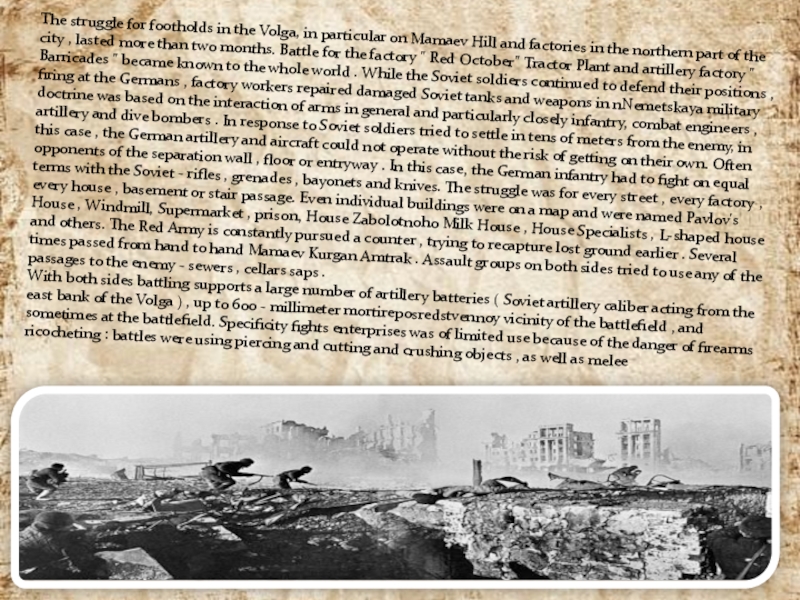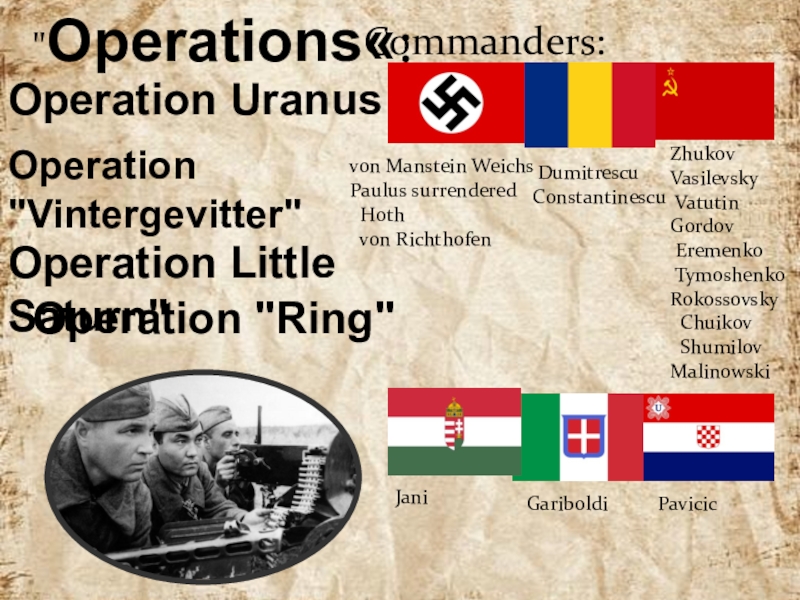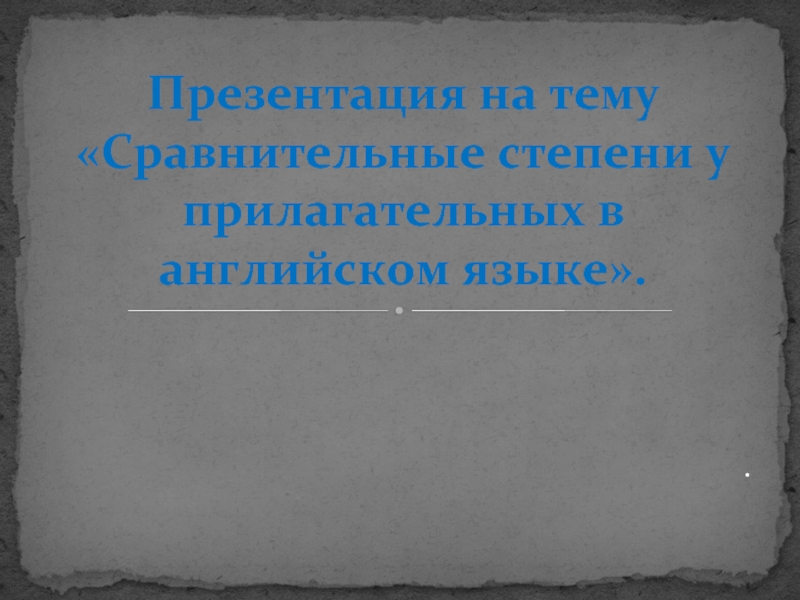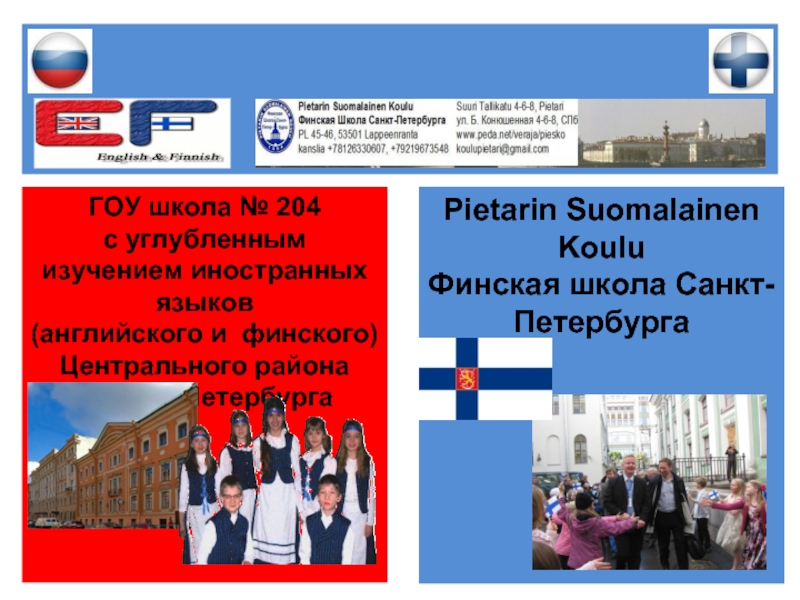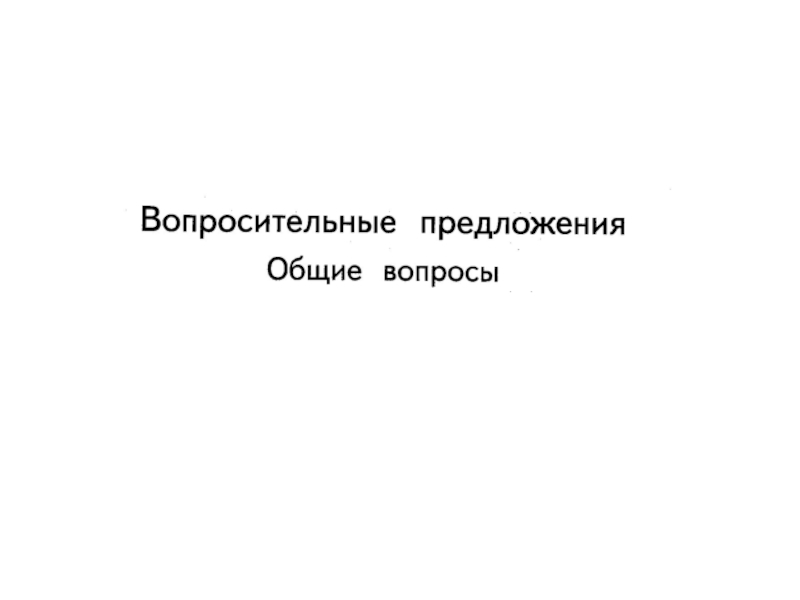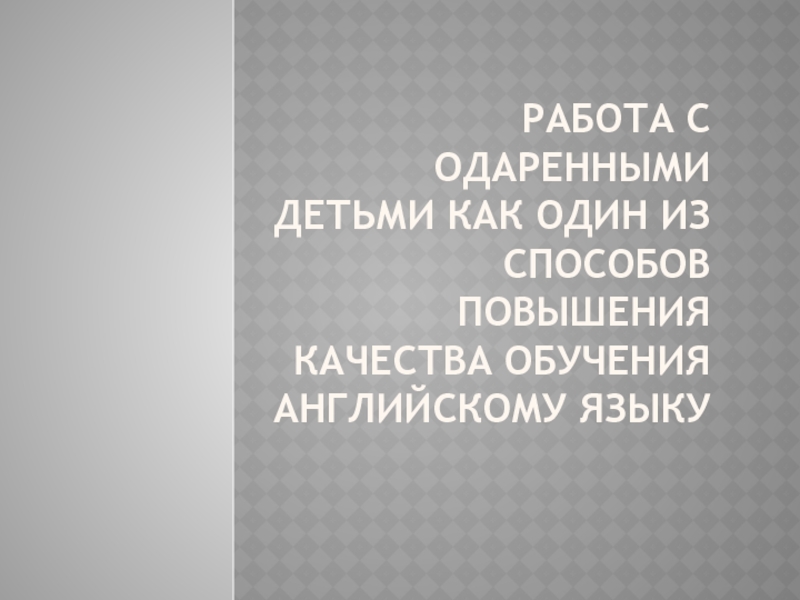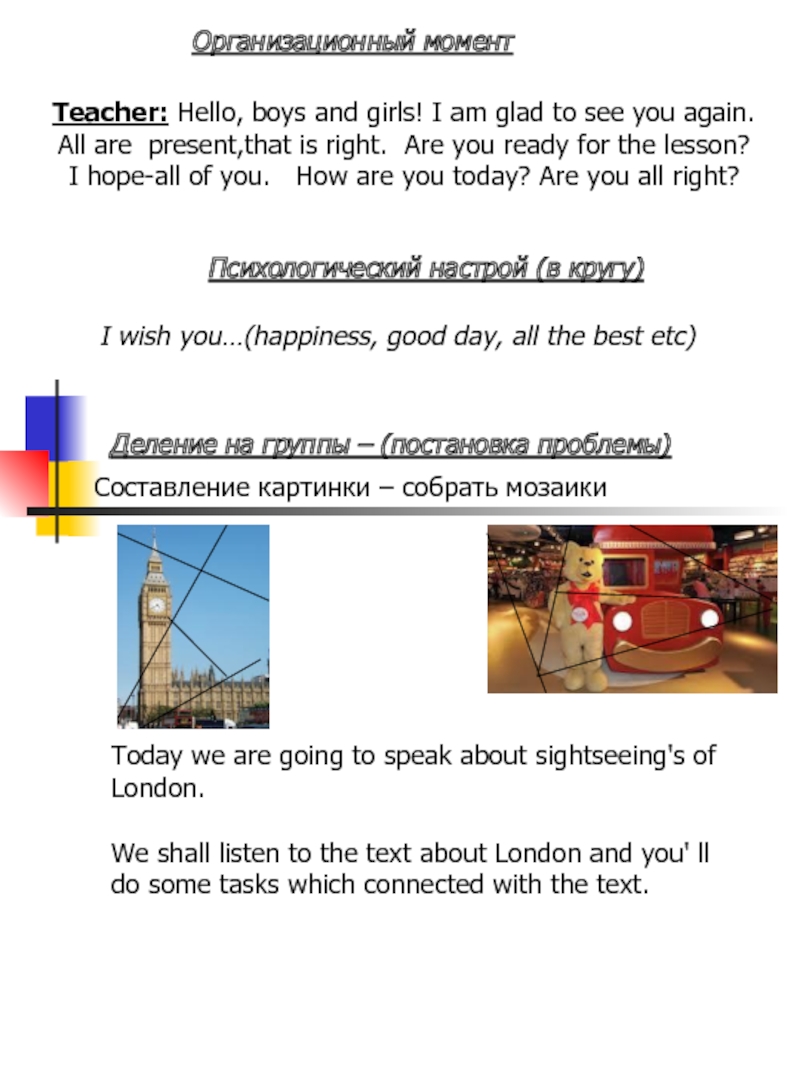in general and particularly closely infantry, combat engineers , artillery
and dive bombers . In response to Soviet soldiers tried to settle in tens of meters from the enemy, in this case , the German artillery and aircraft could not operate without the risk of getting on their own. Often opponents of the separation wall , floor or entryway . In this case, the German infantry had to fight on equal terms with the Soviet - rifles , grenades , bayonets and knives. The struggle was for every street , every factory , every house , basement or stair passage. Even individual buildings were on a map and were named Pavlov's House , Windmill, Supermarket , prison, House Zabolotnoho Milk House , House Specialists , L-shaped house and others. The Red Army is constantly pursued a counter , trying to recapture lost ground earlier . Several times passed from hand to hand Mamaev Kurgan Amtrak . Assault groups on both sides tried to use any of the passages to the enemy - sewers , cellars saps .
With both sides battling supports a large number of artillery batteries ( Soviet artillery caliber acting from the east bank of the Volga ) , up to 600 - millimeter mortars
Soviet snipers using ruins as shelters , as the Germans inflicted heavy damage . Sniper Vasily Zaytsev during the battle destroyed 225 enemy soldiers and officers ( including 11 snipers ) .
Soviet soldiers stormed the house in Stalingrad in February 1943
And Stalin , Hitler and the battle for Stalingrad became a matter of prestige , in addition to the strategic importance of the city. The Soviet command moved the Red Army reserves from Moscow to the Volga , and redeployed air force with virtually the entire country to the Stalingrad area .
Morning of October 14 6th German army launched a decisive attack on the Soviet bridgehead at the Volga. It was supported by more than a thousand aircraft of the 4th Air Force Luftwaffe. Concentration of German troops was unprecedented - at the front only about 4 km to the tractor factory and plant " Barricades " attacked three infantry and two armored divisions .Soviet troops stubbornly defended , supported by artillery fire from the east bank of the Volga and the Volga Flotilla ships . However, the artillery on the left bank of the Volga began experiencing shortages of ammunition in connection with the preparation of the Soviet counter-offensive . November 9 started cold , the
temperature dropped to minus 18 degrees. Crossing the Volga River has become extremely difficult because of drifting ice floes on the river , the troops of the 62nd Army experienced an acute shortage of ammunition and food. By the end of the day November 11 German troops were able to capture the southern part of the plant " Barricades " and on a plot of 500 m in width to break through to the Volga, 62nd Army now held three isolated from each other by small bridgehead ( the least of which was the island Lyudnikova ) . Division of the 62nd Army after their losses numbered only 500-700 people. But German divisions also suffered huge losses in many parts of the battles killed more than 40 % of personnel
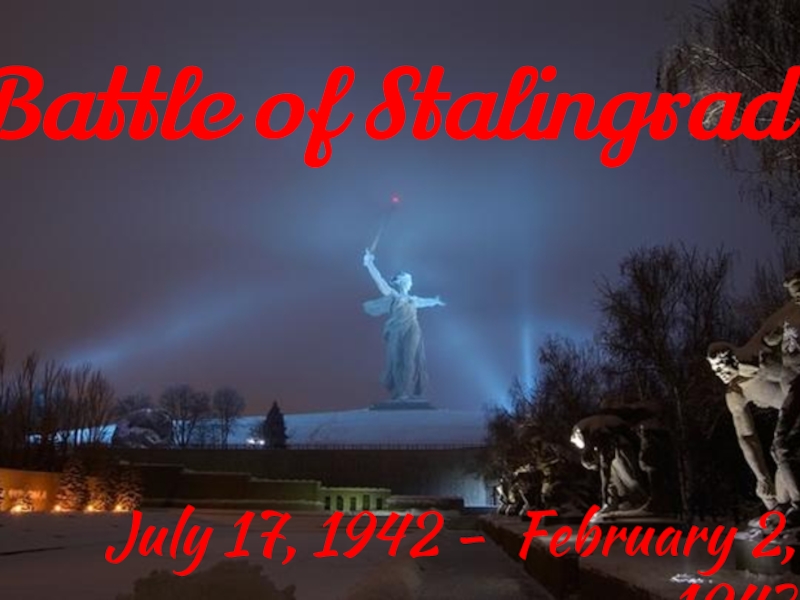
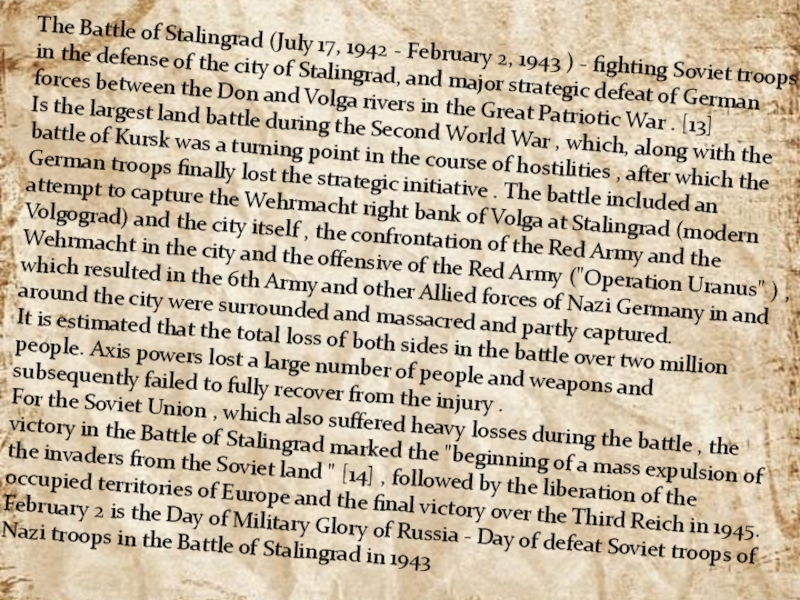
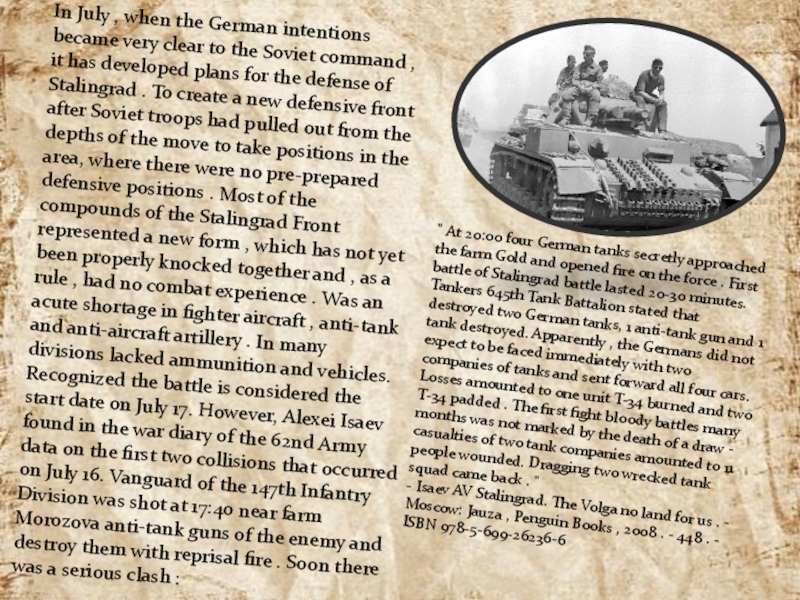


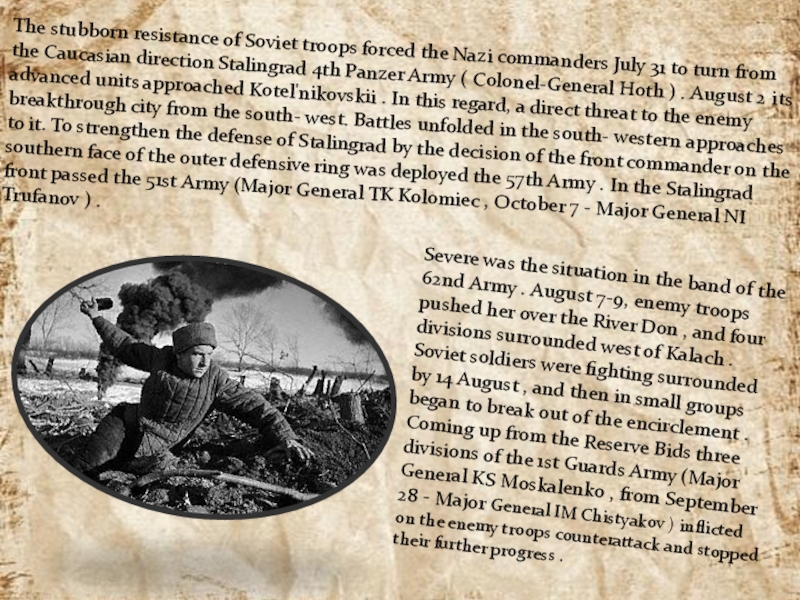

![The Battle of Stalingrad By August 23, 1942 of 400 thousand inhabitants of Stalingrad was By August 23, 1942 of 400 thousand inhabitants of Stalingrad was evacuated about 100,000 [18]. August 24](/img/thumbs/3aa16ea525f195d6313a066f244462ab-800x.jpg)


